Books are a valuable tool when it comes to resources for learning German. Reading can help you improve your language skills and also dive deeper into German culture. So today, we’re sharing a list of some of our favorite German books. We’ve chosen them based on their accessibility and their use of common vocabulary and grammatical structures. You’ll see – you don’t have to be perfectly bilingual to enjoy reading in German!

German Books for Beginners
 The Detektiv Müller Collection
The Detektiv Müller Collection
The “Detektiv Müller” Collection are short detective stories written specifically with German learners in mind.
The stories are exciting, accessible, and full of action, and they paint an entertaining portrait of German culture and society. Each story takes place in a different part of the country: Munich, Frankfurt, Hamburg, Berlin… so you can explore different cities while you read!
And if you don’t understand every word you read (which is 100% normal), there’s also a glossary, illustrations, and notes on cultural context to help you out.
Order from Klett World Languages
 Neuanfang mit Schokolade – Carolin Hinck: A German book for everyone
Neuanfang mit Schokolade – Carolin Hinck: A German book for everyone
If crime novels aren’t really your cup of tea, you might enjoy Neuanfang mit Schokolade. Though it looks like a German cookbook, it’s actually a novel. But don’t let that scare you off! It’s perfectly suited to learners at the A1-A2 level.
This book follows the story of Tina, who has recently returned to her hometown, Augsburg. She’s inherited the family bakery along with all of its challenges. That is, until Franz enters the picture…
It’s easy to follow, but has lots of suspense, useful vocabulary and grammar, and illustrations!
 The “Leo & Co.” Collection
The “Leo & Co.” Collection
The “Leo & Co.” collection is a series of books intended for teens and German language learners. They’re perfect for improving comprehension and learning more about German culture.
Each book tells the story of a different character in a very specific context: Oktoberfest, summer break, Christmas, speed dating… It’s a great way to get a feel for German customs and everyday culture.
Just like the two books mentioned above, these also have illustrations, glossaries, and grammar explanations to help learners get their bearings.
Start improving your German today
Good news: we can help!
More good news: you can get started for free! With your free trial, you can test drive the most effective method for learning German for the next 15 days!
Vocabulary flashcards, videos with subtitles, audiobooks, articles adapted to your level – with MosaLingua Premium (Web & Mobile), you’ll have access to all this and more. Get started right now. It’s free—and risk-free—to try!
Intermediate Books for German Learners
 Tales by the Brothers Grimm
Tales by the Brothers Grimm
Even if you’re not fluent, there’s nothing stopping you from reading the classics!
The familiar tales written by the Brothers Grimm, for instance, are a great starting point. Did you know that children were not the original intended audience for these stories? They were actually written for adults, to help them improve their vocabulary. It was only later that they were adapted for children.
The advantage of starting with these stories is that you probably already know the characters and plot. This will help your comprehension of the text. There are lots of bilingual versions of these stories out there, or you can dive straight into the original texts.
 Intermediate German Short Stories: Get a taste of German literature
Intermediate German Short Stories: Get a taste of German literature
Dive into a book of classic German short stories. This edition features stories by
German Books for Advanced Learners
 Faust – Goethe: A German cult classic
Faust – Goethe: A German cult classic
If you already have a strong level in German, there’s no reason not to introduce yourself to a bit of classic German literature, right? These German texts are often long and are best suited to advanced learners. If you’re a fan of drama, read Goethe’s Faust. It’s the story of an intelligent, successful man who gets bored with his life and makes a pact with the devil.
It’s always interesting to read powerful texts in the language they were originally written in because there’s always an extra dimension of beauty that translations often don’t capture entirely.
Yes, Goethe does require a pretty thorough understanding of the German language. Take your time, be patient, and don’t be afraid to use a dictionary or parallel text.
 Der Zauberberg – Thomas Mann
Der Zauberberg – Thomas Mann
Considered one of the most influential texts of 20th-century German literature, Der Zauberberg is the story of Hans Castorp who, while visiting his cousin in a sanatorium in the Alps, discovers that he himself has fallen ill.
Though this novel is a bit more modern than Faust, it’s still an extremely long and challenging read.
There are many different bilingual editions of this story, so don’t hesitate to take that route. As mentioned earlier, if you run into unfamiliar vocabulary, try to figure out the meaning based on the context. Make a note of the word and look it up in a dictionary later – don’t keep interrupting your reading.
 Schachnovelle – Stefan Zweig
Schachnovelle – Stefan Zweig
This much shorter novel paints a portrait of two very dissimilar chess players – one is the reigning world champion, and the other is a former prisoner of war who plays only in his mind. The work is a mise en abîme (an artistic and literary convention of using infinitely recurring sequences). It’s the most famous work by Austrian author Stefan Zweig.
Reading this book is a good way to expand your horizons beyond the German experience. This variation of German is obviously spoken in Austria, but also in a small portion of Italy.
How to Read German and Actually Understand It
- Pick reading material at the right level. It should be challenging enough that you’re learning new words and grammar, but not so challenging that you can’t even wrap your head around it. Don’t dive right into lengthy novels! Start with articles, short stories, and kid’s books. When you’re ready for something longer, try reading something you’ve already read in English. That way you already have a good idea of the story, and you can spend your time focusing on learning and understanding German.
- Read what you like. If you don’t enjoy reading dense philosophical texts in English, no need to read them in German. Pick something that will hold your attention.
- Write down new words you encounter. You don’t need to write down every single word you don’t understand—first, use context clues to try and understand unfamiliar words and phrases. Note down the words that really stump you or the ones that you keep seeing repeatedly. Then, use a good German-English dictionary to define your words, and voila: you have a personalized vocabulary list to study however you like!
- Read alongside an audiobook. For a super immersive experience, crack open a book and turn on its audiobook at the same time. You’ll get to hear native German pronunciation as you follow along. Slow down the speed if you need to.
- Make it a habit. Try to read something every day, even if it’s just a short article over breakfast or the comments on a German Instagram page. Social media totally counts, as long as you’re reading! Language learning is a muscle, and you should work it in big and small ways to keep it active.
Try German comic books
When you’re first starting to read German, your skills might not be developed enough to read a whole book quite yet. That’s where German comics and graphic novels come in! Reading German comic books is a fun way to ease into reading German.
Why comics?
You get all the fun of reading a full story but with much less text, so it’s more accessible to beginner readers. Even if you don’t immediately understand the words, the illustrations provide a ton of context.
Here are some recommendations to get you started:
- Heute ist der letzte Tag vom Rest deines Lebens by Ulli Lust. Lust is an Austrian artist who lives and works in Berlin, and this autobiographical comic details her adventures while backpacking through Italy.
- Das Leben ist kein Ponyhof by Sarah List. This is a popular German webcomic, also semi-autobiographical, that launched in 2009.
- Liebe und Monsters by Adrian vom Bauer. This is a fun read about a first date that quickly turns into an interdimensional adventure.
Get the whole family involved, read German children’s books
If you’re trying to improve your German reading skills, take baby steps… literally! Reading German picture books is a great way to build your confidence and go slowly as you start your German reading journey.
Think about it: when you were learning to read in your native language, did you immediately pick up a long, complicated novel? Of course not! You worked your way up to that skill. Take the same approach when learning to read German.
Here are some recommendations for German books for kids:
- Das kleine Ich bin ich by Mira Lobe. This is a classic German children’s book about a small creature who learns to love his unique features.
- Das doppelte Lottchen by Erich Kästner. This book, whose English title is “The Parent Trap,” inspired two beloved movies and is a fun read.
- Drachenreiter by Cornelia Funke. This young adult novel about a young orphan and his connection with a dragon is a fantastical delight.
Where to buy German books
Now you’re ready to pick up some books in German and start reading—but where can you buy German books? There are a few online retailers that stock German books, so let’s take a look at them.
- Klett World Languages. Klett makes educational products, and they have many graded German readers for all different levels. Their readers touch on many interesting subjects, from stories about travel to gripping crime stories to keep your attention.
- Amazon.com. Amazon is a great place to find German books for all levels of your German reading journey. From textbooks to readers, to novels originally written in German, you’ll find what you’re looking for here.
- Buecherstube.com. On this site, you can find a varied collection of imported German books and learning materials. The website is a little outdated, but their collection of German reading material is amazing!
- Last but certainly not least: try your local bookstore! Many bookstores have a foreign language section. It’s worth noting that many independent bookstores can cater to special orders, so if you have a German title in mind, it’s possible your local bookstore can order it for you.
As a final note – don’t forget that you should be able to find some of these books at your local library, which often has a foreign language section. Don’t hesitate to ask a librarian for help if you can’t find it. They might even be able to order a book at your request.
Next Steps
Here are a few articles on the same topic that might interest you:
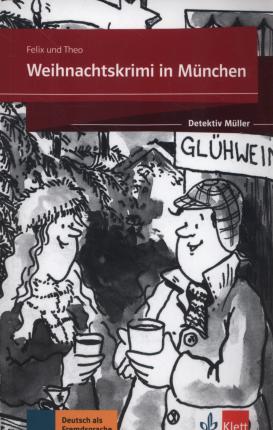 The Detektiv Müller Collection
The Detektiv Müller Collection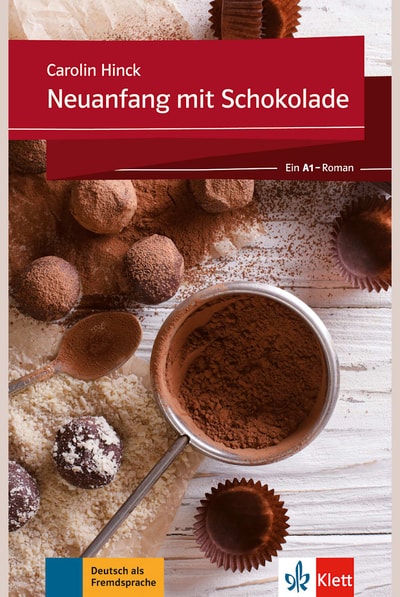 Neuanfang mit Schokolade – Carolin Hinck: A German book for everyone
Neuanfang mit Schokolade – Carolin Hinck: A German book for everyone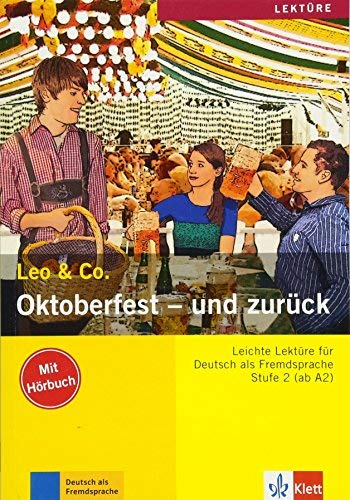 The “Leo & Co.” Collection
The “Leo & Co.” Collection
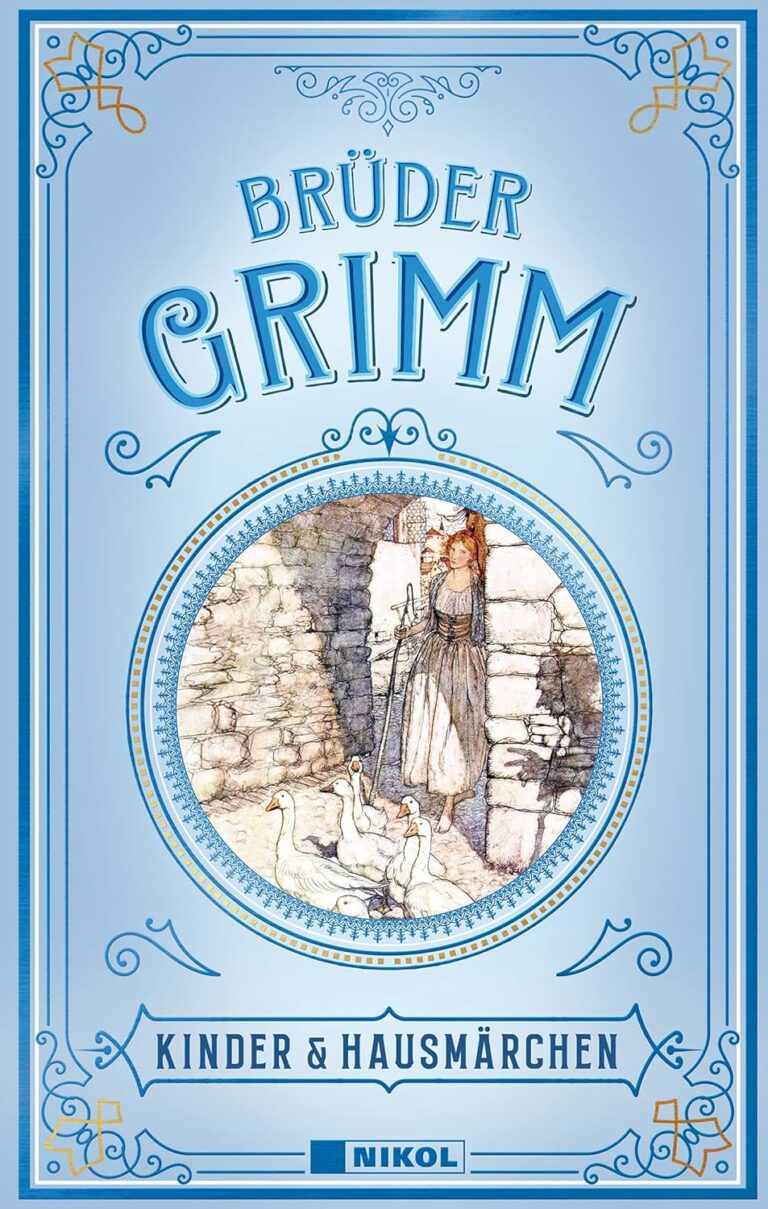 Tales by the Brothers Grimm
Tales by the Brothers Grimm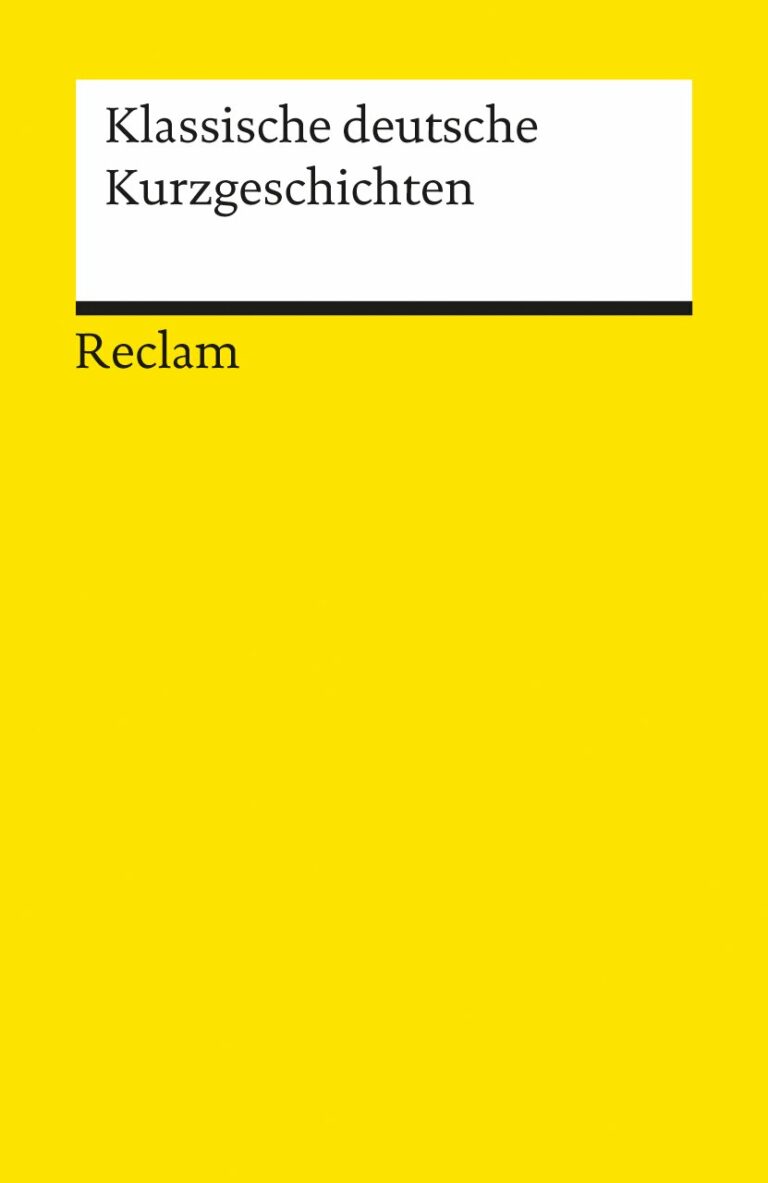 Intermediate German Short Stories: Get a taste of German literature
Intermediate German Short Stories: Get a taste of German literature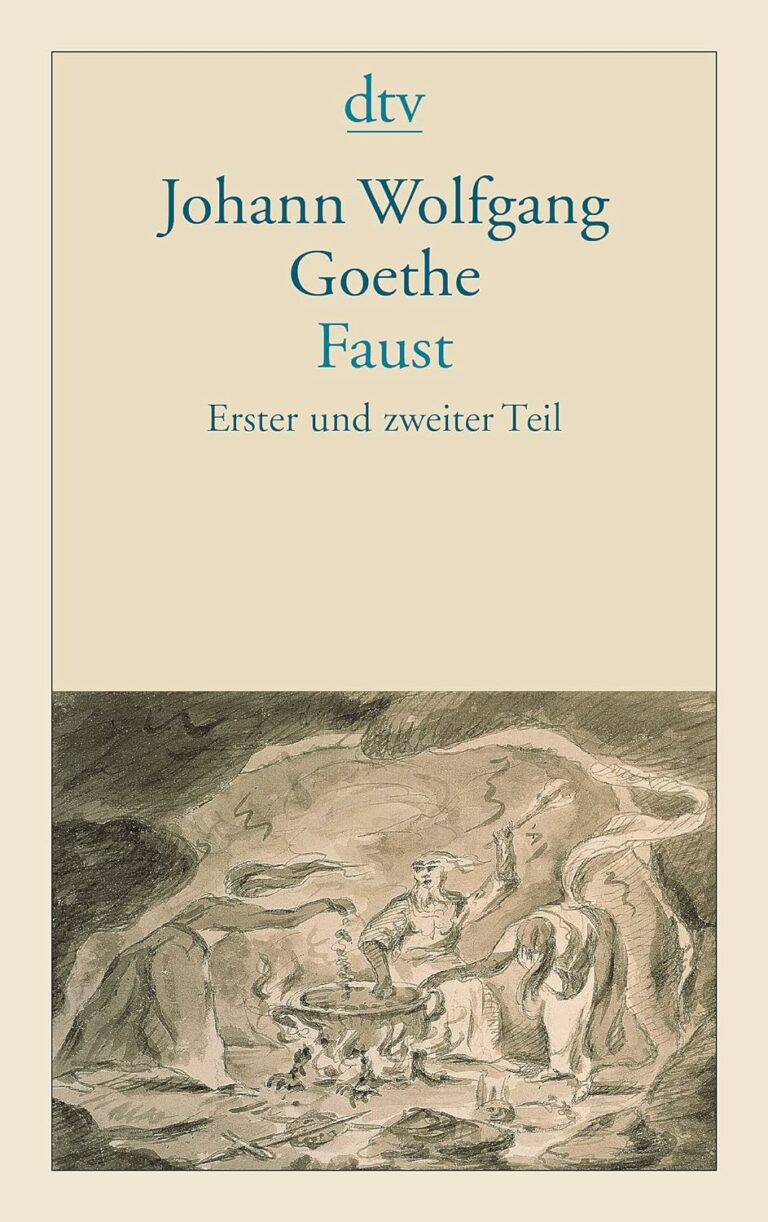 Faust – Goethe: A German cult classic
Faust – Goethe: A German cult classic Der Zauberberg – Thomas Mann
Der Zauberberg – Thomas Mann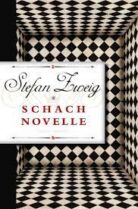 Schachnovelle – Stefan Zweig
Schachnovelle – Stefan Zweig
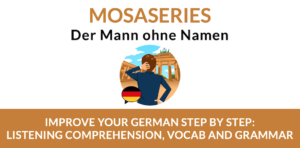


Comments